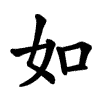Definify.com
Definition 2026
東
東
Translingual
| Stroke order | |||
|---|---|---|---|

| |||
Han character
東 (radical 75 木+4, 8 strokes, cangjie input 木田 (DW), four-corner 50906, composition ⿻木日)
Descendants
References
- KangXi: page 513, character 12
- Dai Kanwa Jiten: character 14499
- Dae Jaweon: page 899, character 8
- Hanyu Da Zidian: volume 2, page 1165, character 4
- Unihan data for U+6771
Chinese
| trad. | 東 | |
|---|---|---|
| simp. | 东 | |
Glyph origin
| Historical forms of the character 東
| ||||
|---|---|---|---|---|
| Oracle bone script | Bronze inscriptions | Bamboo and silk script | Large seal script | Small seal script |
 |
 |
 |
 |
 |
| Characters in the same phonetic series (東) (Zhengzhang, 2003) | |
|---|---|
| Old Chinese | |
| 東 | *toːŋ |
| 菄 | *toːŋ |
| 鶇 | *toːŋ |
| 倲 | *toːŋ |
| 涷 | *toːŋ, *toːŋs |
| 蝀 | *toːŋ, *toːŋʔ |
| 凍 | *toːŋ, *toːŋs |
| 鯟 | *toːŋ |
| 崠 | *toːŋ |
| 埬 | *toːŋ |
| 棟 | *toːŋs |
Phonetic borrowing – originally represented a bag tied at both ends (like a cellophane-wrapped candy with the ends twisted), and was later borrowed phonetically to mean “east”. This borrowing may have been influenced by reinterpreting the character as the sun (日) rising behind a tree (木), which is the traditional (though incorrect) etymology, as given in Shuowen.
Pronunciation
- Mandarin
- Cantonese (Jyutping): dung1
- Hakka (Sixian, PFS): tûng
- Min Nan (POJ): tang / tong
- Wu (Wiktionary): ton (T1)
- Mandarin
- (Standard Chinese, Beijing)+
- Pinyin:
- Zhuyin: ㄉㄨㄥ
- Wade-Giles: tung1
- Gwoyeu Romatzyh: dong
- IPA (key): /tʊŋ⁵⁵/
-

- (Standard Chinese, Beijing)+
- Cantonese
- (Standard Cantonese, Guangzhou)+
- Jyutping: dung1
- Yale: dūng
- Cantonese Pinyin: dung1
- IPA (key): /tʊŋ⁵⁵/
- (Standard Cantonese, Guangzhou)+
- Hakka
- (Sixian, incl. Miaoli and Meinong)
- Pha̍k-fa-sṳ: tûng
- Hakka Romanization System: dung´
- Hagfa Pinyim: dung1
- IPA: /tuŋ²⁴/
- (Sixian, incl. Miaoli and Meinong)
- Min Nan
- Wu
- (Shanghainese)
- Wiktionary: ton (T1)
- IPA (key): /tʊŋ⁵³/
- (Shanghainese)
| Rime | |
|---|---|
| Character | 東 |
| Reading # | 1/1 |
| Initial (聲) | 端 (5) |
| Final (韻) | 東 (1) |
| Tone (調) | Level (Ø) |
| Openness (開合) | Open |
| Division (等) | I |
| Fanqie | 德紅切 |
| Reconstructions | |
| Zhengzhang Shangfang |
/tuŋ/ |
| Pan Wuyun |
/tuŋ/ |
| Shao Rongfen |
/tuŋ/ |
| Edwin Pulleyblank |
/təwŋ/ |
| Li Rong |
/tuŋ/ |
| Wang Li |
/tuŋ/ |
| Bernard Karlgren |
/tuŋ/ |
| Expected Mandarin Reflex |
dōng |
| Baxter-Sagart system 1.1 (2014) | |
|---|---|
| Character | 東 |
| Reading # | 1/1 |
| Modern Beijing (Pinyin) |
dōng |
| Middle Chinese |
‹ tuwng › |
| Old Chinese |
/*tˤoŋ/ (< *tˤoŋʔ ?) |
| English | east |
Notes for Old Chinese notations in the Baxter-Sagart system: * Parentheses "()" indicate uncertain presence; | |
| Zhengzhang system (2003) | |
|---|---|
| Character | 東 |
| Reading # | 1/1 |
| No. | 2435 |
| Phonetic component |
東 |
| Rime group |
東 |
| Rime subdivision |
0 |
| Corresponding MC rime |
東 |
| Old Chinese |
/*toːŋ/ |
| Notes | 種(種籽)初文,甲金文象種皮甲坼萌生根芽,參敕字陳字注 |
Definitions
東
Coordinate terms
Compounds
|
|
|
Japanese
Kanji
Readings
- Goon: つう (tsū) (non-Jōyō reading)
- Kan’on: とう (tō)
- Kun: あずま (azuma), ひむかし (himukashi), ひんがし (hingashi), ひがし (higashi)
- Nanori: あい (ai), あがり (agari), こ (ko), さき (saki), しの (shino), はじめ (hajime), はる (haru), ひが (higa), もと (moto)
Compounds
|
Etymology 1
| Kanji in this term |
|---|
| 東 |
|
とう Grade: 2 |
| on'yomi |
From Middle Chinese 東 (tuwng, “east”).
Pronunciation
Proper noun
東 (hiragana とう, romaji Tō)
- A surname.
- Abbreviation of 関東 (Kantō): the Kantō region
- Abbreviation of 東国 (Tōgoku): eastern Japan
Etymology 2
| Kanji in this term |
|---|
| 東 |
|
ひむかし Grade: 2 |
| kun'yomi |
*/pimukasi/ → /fimukaɕi/ → /himukaɕi/
From Old Japanese. Compound of 日 (hi, “sun”) + 向か (muka, “facing, direction”) + 風 (shi, “wind, direction”).[1][2]
Pronunciation
Noun
東 (hiragana ひむかし, romaji himukashi)
- (obsolete) east
Etymology 3
| Kanji in this term |
|---|
| 東 |
|
ひんがし Grade: 2 |
| kun'yomi |
/pimukasi/ → /pimugasi/ → /fimugaɕi/ → /fingaɕi/ → /hingaɕi/
Sound shift from earlier pimukasi.[1][2]
Pronunciation
Noun
東 (hiragana ひんがし, romaji hingashi)
- (obsolete) east
- 10th century: Ise Monogatari (chapter 4, page 82)
- むかし、東(ひんがし)の五条に大后の宮おはしましける、西の対に住む人有けり。
- 10th century: Ise Monogatari (chapter 4, page 82)
Etymology 4
| Kanji in this term |
|---|
| 東 |
|
ひがし Grade: 2 |
| kun'yomi |
/hingaɕi/ → /higaɕi/
Sound shift from earlier hingashi. Now the standard word for east.[1][2]
Pronunciation
- Kun'yomi
- (Tokyo) ひがし [hìgáshí] (Heiban - [0])[2][3]
- (Tokyo) ひがし [hìgáshíꜜ] (Odaka - [3])[2][3]
- IPA(key): [çiɡ̃a̠ɕi]
Noun
東 (hiragana ひがし, romaji higashi)
Proper noun
東 (hiragana ひがし, romaji Higashi)
- A surname.
Etymology 5
| Kanji in this term |
|---|
| 東 |
|
あずま Grade: 2 |
| kun'yomi |
/aduma/ → /ad͡zuma/ → /azuma/
From Old Japanese.[1][2] Ultimate derivation unknown. A speculative origin might be a compound of 天 (ama, “sky, heavens”) + 端 (tsuma, “edge, beginning”), but the elision of the ma in ama does not follow normal patterns.
Pronunciation
Noun
東 (hiragana あずま, romaji azuma, historical hiragana あづま)
- east, Eastern Japan
Proper noun
東 (hiragana あずま, romaji Azuma)
- A male given name
- A surname.
References
- 1 2 3 4 1988, 国語大辞典(新装版) (Kokugo Dai Jiten, Revised Edition) (in Japanese), Tōkyō: Shogakukan
- 1 2 3 4 5 6 7 2006, 大辞林 (Daijirin), Third Edition (in Japanese), Tōkyō: Sanseidō, ISBN 4-385-13905-9
- 1 2 3 1998, NHK日本語発音アクセント辞典 (NHK Japanese Pronunciation Accent Dictionary) (in Japanese), Tōkyō: NHK, ISBN 978-4-14-011112-3
- Horiuchi, Hideaki; Ken Akiyama (1997) Taketori Monogatari , Ise Monogatari, Tōkyō: Iwanami Shoten, ISBN 4-00-240017-4
Korean
Hanja
東 • (dong)
Eumhun:
- Sound (hangeul): 동 (revised: dong, McCune-Reischauer: tong, Yale: tong)
- Name (hangeul): 동녘 (revised: dongnyeok, McCune-Reischauer: tongnyŏk, Yale: tongnyekh)
- This term needs a translation to English. Please help out and add a translation, then remove the text
{{rfdef}}.
Compounds
- 정동 (征東, jeongdong)
- 정동 (正東, jeongdong)
- 정동방 (正東方, jeongdongbang)
- 제동야인 (齊東野人, jedong-yain)
- 동대문 (東大門, dongdaemun)
Okinawan
Kanji
東
Readings
- Native: く (ku), くち (kuchi), あがり (agari)
- Nonnative: とー (tō), とぅ (tu)
Compounds
- 東風 (くち, kuchi): east wind, easterly wind, eastern wind
- 東風 (くちかじ, kuchikaji): east wind, easterly wind, eastern wind
- 東京 (とーちょー, tōchō): Tokyo
- 広東瓜 (くゎんとぅうい, kwantuui): watermelon
Etymology
From 上り (agari, “ascent, rise”) in reference to the direction where the sun rises, ascends.
Pronunciation
- IPA(key): /ʔagaɾi/
Noun
東 (hiragana あがり, romaji agari)
Vietnamese
Han character
- This term needs a translation to English. Please help out and add a translation, then remove the text
{{rfdef}}.